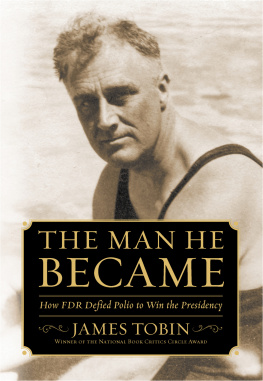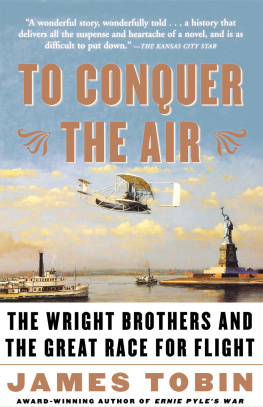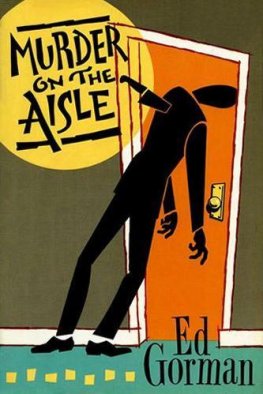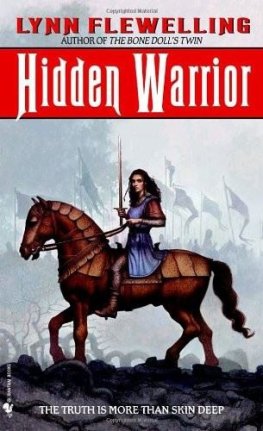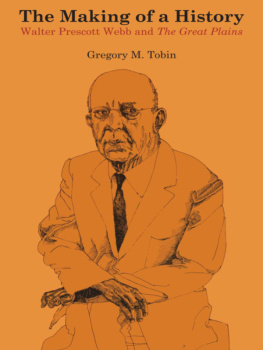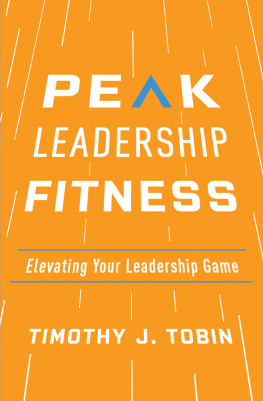James Tobin - The Man He Became
Here you can read online James Tobin - The Man He Became full text of the book (entire story) in english for free. Download pdf and epub, get meaning, cover and reviews about this ebook. publisher: Simon & Schuster, genre: Non-fiction. Description of the work, (preface) as well as reviews are available. Best literature library LitArk.com created for fans of good reading and offers a wide selection of genres:
Romance novel
Science fiction
Adventure
Detective
Science
History
Home and family
Prose
Art
Politics
Computer
Non-fiction
Religion
Business
Children
Humor
Choose a favorite category and find really read worthwhile books. Enjoy immersion in the world of imagination, feel the emotions of the characters or learn something new for yourself, make an fascinating discovery.
- Book:The Man He Became
- Author:
- Publisher:Simon & Schuster
- Genre:
- Rating:4 / 5
- Favourites:Add to favourites
- Your mark:
- 80
- 1
- 2
- 3
- 4
- 5
The Man He Became: summary, description and annotation
We offer to read an annotation, description, summary or preface (depends on what the author of the book "The Man He Became" wrote himself). If you haven't found the necessary information about the book — write in the comments, we will try to find it.
The Man He Became — read online for free the complete book (whole text) full work
Below is the text of the book, divided by pages. System saving the place of the last page read, allows you to conveniently read the book "The Man He Became" online for free, without having to search again every time where you left off. Put a bookmark, and you can go to the page where you finished reading at any time.
Font size:
Interval:
Bookmark:
Thank you for downloading this Simon & Schuster eBook.
Join our mailing list and get updates on new releases, deals, bonus content and other great books from Simon & Schuster.
C LICK H ERE T O S IGN U P
or visit us online to sign up at
eBookNews.SimonandSchuster.com

To Leesa
and to
John Bacon
Richard and Dianna Campbell
Jonathan Marwil
Randy Milgrom
Rob and Anne Raymond
One of the central problems facing anyone dealing with Franklin Roosevelts personal history is just what made him the man he became.
JOSEPH ALSOP
March 4, 1933, The Capitol
F ranklin D. Roosevelt sat in a plain chair, waiting to be summoned to the chamber of the United States Senate. It was eleven thirty in the morning on the day of his inauguration as president of the United States. At noon, he was to watch his running mate, John Nance Garner of Texas, take the oath as vice president. Then he would walk outside for his own swearing-in at one oclock.
He was waiting in the room reserved for the Senates Committee on Military Affairs. Several assistants sat with him, among them his eldest son, James, always called Jimmy, twenty-six years old, brawny and an inch or two taller than his father.
At ten minutes to noon someone looked in and said they were ready for him in the Senate.
Roosevelt hitched himself to the edge of his chair, placed his hands on his thighs, and pushed until his legs were straight out in front of him. He felt through the fabric of his trousers for metal locks on the custom-made braces that encased his legs. Then he snapped the locks shut so his knees would not buckle when he rose. Jimmy stood and faced him. Father and son grasped each other by the arms and, with a quick heave, the elder Roosevelt rocked up onto his feet and straightened at the waist. With one hand he grasped a wooden cane. With the other he held Jimmys arm. Under his trousers, the bars and cuffs and belts of his braces held his legs rigid from his heels to his buttocks. His cane, his son, and his own stiffly braced lower body formed the three legs of a reasonably stable tripod.
Slowly, they moved across the room and into the corridor. There Colonel Edward Halsey, secretary of the Senate, met them and held up his hand. Halsey said he was very sorry, but the Senate wasnt quite ready after all.
Jimmy and his father stopped, pivoted, and ambulated back into the Military Affairs committee room. At the chair, Roosevelt pivoted again, set down his cane, gripped his son, and lowered himself onto the seat, legs locked straight in front. He reached behind his knees, undid the locks, pulled his knees up, hitched himself backward, and rested his hands on the arms of the chair, ready to tighten his grip if he began to tilt and fall to the floor.
After ten more minutes, the Senate was ready.
Jimmy stood. Roosevelt pushed his legs down and locked the braces. Father and son heaved and he was standing.
They moved across the room and into the corridor, where members of the Committee on Arrangements waited to escort him. A voice ahead of him was announcing, The president-elect of the United States... Then he was inside the brilliantly lit chamber. Senators, congressmen, the justices of the Supreme Court, the military chiefs, members of the diplomatic corps, his children, his mother, his wife in a purple-blue gown, holding an enormous bouquet of violetsall were looking at him. Jimmy escorted him to a new chair, and there, between President Herbert Hoover, whom Roosevelt had defeated in the November election, and Senator Joseph Taylor Robinson of Arkansas, leader of the new Democratic majority, Roosevelt sat again, unlocked the braces, pulled up his knees, and lightly grasped the arms of his chair.
He listened as fifteen new senators and the new vice president were sworn in, and the Senate of the 72nd Congress was declared adjourned.
Then the Senate chaplain, the Reverend ZeBarney Thorne Phillips, rector of Washingtons Episcopal Church of the Epiphany, asked the assembly to rise for prayer.
Every one of the hundreds of people in the Senate chamber stood up except the president-elect.
A reporter in the press gallery saw Roosevelt lean forward for an instant, as if by instinct. Then he settled back.
Senator Robinson, now standing, glanced down at Roosevelt. Robinson was hardly known for courtliness. He had once been suspended from the Chevy Chase Country Club for punching a fellow golfer on the 15th green. But at this moment he did something, as another watching reporter put it, that should win him a golden mark in the manual of gentlemen. He dropped to his seat beside the president-elect. Everyone else in the room remained standing for the prayer.
The moment came to move outside for the presidential oath of office and the inaugural address. The Capitols corridors filled with people. The crowd jammed up at the great door that opened onto the Capitols east plaza. Roosevelt stood behind Herbert Hoover and waited. His bulky upper body pressed down on the joints of his knees. Holding himself upright was a concerted act of strength and balance.
Then Jimmy and he, now in top hats, were out the door into cold, gray daylight under lowering clouds, moving slowly down a long ramp that led to the speakers platform and the lectern itself. Members of the Hoover administration, Roosevelts own new Cabinet secretaries, and members of Congress walked in a close-packed formation.
One hundred thousand people were watching. Twelve thousand were seated. The rest stood in a crowd that spread across the plaza and East Capitol Drive and up the front steps of the Supreme Court and the Library of Congress and into the branches of the surrounding trees. A hundred press photographers straight in front of him clicked their shutters. Newsreel cameras whirred.
Roosevelt moved toward them all with a slow, swaying gait, Jimmy next to him, swaying in rhythm with his father. The procession blocked the crowds view of anything but Roosevelts shoulders and head. But if Jimmy and he had been walking alone, people would have noticed that with each step he leaned a bit to one side, while on the opposite side he hitched his shoulder just enough to swing the leg on that side forward. The coordinated movements of the shoulder and the leg were smooth and almost simultaneous. Anyone who saw his gait could see he was crippled. But, with help, he was walking.
He reached the lectern, grasped it with one hand, set down his cane, and removed his top hat. Jimmy moved a few steps back. Roosevelt swiveled to face Chief Justice Charles Evans Hughes. With his left hand, he gripped the lectern. As Hughes read the words of the oath, beginning, Do you, Franklin Delano Roosevelt, solemnly swear... Roosevelt held up his right hand. When Hughes completed the question, Roosevelt lowered his right hand to the Dutch Bible that had been in his family since the seventeenth century. Breaking precedent, he did not, after Justice Hughes posed the question of the oath, simply say I do. Instead, he recited the entire oath, holding the lectern with his left hand, resting his right hand on the first page of Pauls First Epistle to the Corinthians.
For most of his life he had hoped to become president. For twelve years he had prepared for the task he had just performed: walking to this lectern before an enormous audience and standing upright to take the oath of office. The performance had been the culminating and indispensable act of the great struggle of his life. It was not an act of deception; he was not trying to fool anyone into thinking he was not crippled. Anyone who read the newspapers knew that. Rather, it was a deliberate show of strength, a silent, symbolic assertion that he could bear the burden of the presidency.
Next pageFont size:
Interval:
Bookmark:
Similar books «The Man He Became»
Look at similar books to The Man He Became. We have selected literature similar in name and meaning in the hope of providing readers with more options to find new, interesting, not yet read works.
Discussion, reviews of the book The Man He Became and just readers' own opinions. Leave your comments, write what you think about the work, its meaning or the main characters. Specify what exactly you liked and what you didn't like, and why you think so.

